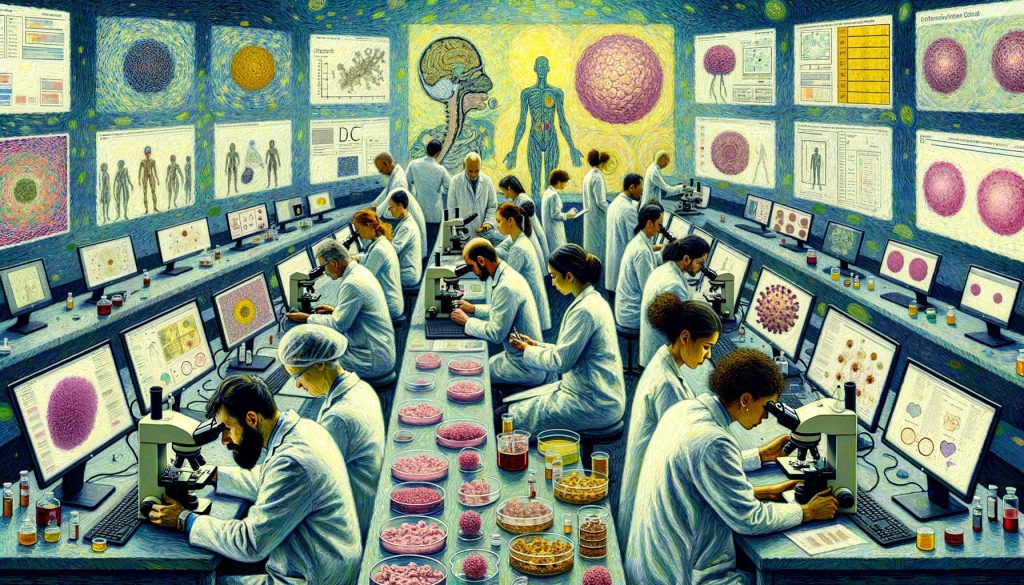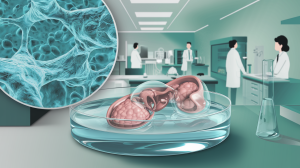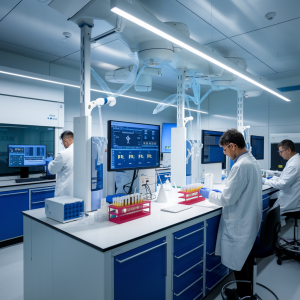Introduction
Cancer treatment has advanced rapidly in the past decade, especially in the field of personalized medicine. One of the latest innovations worth watching is Onco-PDO technology, which is revolutionizing how doctors plan and implement cancer treatments.
What is Onco-PDO?
Onco-PDO stands for Oncology Patient-Derived Organoids. It’s a technique that uses a patient’s cancer cells to create a 3D model in the laboratory. This model accurately simulates the characteristics and behavior of the actual tumor, allowing researchers and doctors to study and test various treatment methods without directly experimenting on the patient.

The Onco-PDO Process
- Sample Collection: Doctors collect cancer tissue samples from patients through biopsy.
- Cultivation: Scientists cultivate cancer cells in a special environment to create organoids.
- Testing: Research teams test drugs and various treatment methods on the organoids.
- Analysis: Test results are analyzed to find the most effective treatment method.
- Treatment Planning: Doctors use data from the tests to plan the most appropriate treatment for each patient.
Benefits of Onco-PDO
- High Accuracy: Simulates tumor characteristics closely to reality.
- Diverse Testing: Can test multiple drugs and treatment methods in a short time.
- Risk Reduction: Helps reduce the chance of patients receiving ineffective treatments or experiencing severe side effects.
- Time and Resource Savings: Reduces the time needed to find suitable treatment methods.
Challenges and Limitations
While Onco-PDO has high potential, there are some challenges:
- Cost: Creating and maintaining organoids is expensive.
- Time: The process may take several weeks, which may not be suitable for patients requiring urgent treatment.
- Biological Complexity: Sometimes, organoids may not be able to simulate all the complexities of the human body.
The Future of Onco-PDO
Researchers are continuously developing Onco-PDO technology, focusing on:
- Reducing the time and cost of creating organoids.
- Increasing accuracy in simulating the human body environment.
- Integrating Onco-PDO with other technologies, such as artificial intelligence, to enhance analysis and prediction of treatment outcomes.
Conclusion
Onco-PDO is a significant step in the development of personalized cancer treatment. This technology allows doctors to tailor treatments more precisely to each patient, resulting in increased chances of effective treatment and reduced unwanted side effects. While there are still some challenges, Onco-PDO has the potential to significantly change the field of cancer treatment in the near future.
Additional Resources
- Driehuis, E., Clevers, H. (2021). “Patient-derived organoids in precision oncology.” Nature Reviews Clinical Oncology, 18, 331–342.
- Xu, H., Lyu, X., Yi, M., Zhao, W., Song, Y., Wu, K. (2018). “Organoid technology and applications in cancer research.” Journal of Hematology & Oncology, 11, 116.
You can follow the latest news and research about Onco-PDO at https://bit.ly/47NtwQZ
If you have questions about cancer prevention or treatment, you can consult with a cancer specialist to receive appropriate advice and the best care at https://bitly.cx/RFLU
#Cancer #AntiAging #epigeneticthailand.com #ConsultWithOncologist #AntiAging



